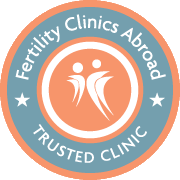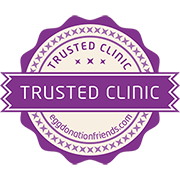Can I use any supplements to improve my egg quality?
by Dimitrios Dovas, last updated 30 Aug 2023,
4 min read
Numerous studies and investigations have indicated that diet impacts' fertility. In fact, some specific food groups and nutrients appear to have a significant effect on reproductive health. Considering this, special dietary supplements are often recommended to improve egg quality and achieve higher success rates in women undergoing ovulation induction for intracytoplasmic sperm injection (ICSI) or in vitro fertilisation (IVF).
A dietary supplement is a product consumed orally. It contains one or more ingredients, such as vitamins, minerals, herbs, or amino acids, which are intended to supplement one's diet and are not considered food.
Some of the following supplements are usually found in fertility treatments plans:
Coenzyme Q10 is a component of the mitochondrial respiratory chain, i.e. an organelle inside the cells required for energy metabolism. CoQ10 is an antioxidant and serves as an energy-promoting agent. It has been shown that concentrations of CoQ10 decline in egg cells after age 30. Although more studies need to be conducted to confirm its benefits, no negative effects have been reported so far while supplementing women undergoing fertility treatments. Nevertheless, it should be noted that CoQ10 sources, such as seafood options, are not very common and, thus, cannot be not easily obtained via a typical diet.
Vitamin E consumption appears to be associated with positive reproductive outcomes. However, recommendations for vitamin E and selenium supplementation should be made cautiously, as high doses of these supplements may have a negative impact and lead to specific diseases. Food sources high in vitamin E include sunflower seeds, almonds, spinach, papaya, and dark leafy greens.
Vitamin D There is evidence that higher rates of vitamin D insufficiency are observed in women with infertility than in the average population. Some studies demonstrated women with higher vitamin D levels in their serum, and follicular fluid had a higher clinical pregnancy rate following IVF. There are still controversial studies about its benefits in infertility.
Vitamin C & A supplementation in cases of infertility is usually less clear and depends on the Body Mass Index (BMI) of the individual. Researchers have reported that an increase in vitamin C intake in women with BMI < 25 kg/m2 significantly reduced the time required to achieve pregnancy. The same was found to be true while increasing the vitamin A intake in women with BMI > 25 kg/m2. However, the optimal daily amount of each antioxidant has not been specified yet.
Folate, also known as Vitamin B9, supplementation has been found to improve fertility treatment rates. As a matter of fact, there are studies suggesting that folate supplementation can have a more positive impact as compared to diet-based folate intake. Similarly, another prospective study of women undergoing IVF revealed that a doubling in the follicular folate levels was associated with a three-fold increase in pregnancy rates. Therefore, it is widely regarded that women should be advised to take folate during fertility treatments and throughout their pregnancy.

Dehydroepiandrosterone (DHEA) is a precursor of Testosterone. This hormone is present in both sexes, though primarily in men. Small quantities of Testosterone in women are needed to form ovarian follicles. There is no current evidence suggesting that DHEA is harmful or has adverse side effects.
Myo-Inositol is a vitamin factor, which is considered part of the B group but not a true vitamin. Inositol supplements can improve pregnancy rates in infertile women undergoing ovulation induction for ICSI or IVF. More specifically, it may improve the quality of embryos and reduce the unsuitable oocytes and the required amount of stimulation drugs.
PUFA (polyunsaturated fatty acids) usually administered as omega-3 fatty acids supplements. These supplements are rich in mono-unsaturated fatty acids, in particular alpha-linolenic acid and docosahexaenoic acid. It has been demonstrated that they have a positive impact on embryo morphology. They may also help to regulate hormones, improve cervical mucus, promote ovulation, and improve the overall health of your uterus. Foods like salmon, mackerel, whole grains, nuts, and dairy products are rich in omega-3 fatty acids.
In general, there is a variety of supplements that may positively affect your egg quality and pregnancy chances. In any case, if you have any questions you can contact our scientific team in order to obtain maximal benefits, avoid risks and receive step-by-step guidance on supplement consumption.

Dimitrios Dovas, MD, DFFP
Dimitrios is the Clinical Director of Newlife Center of Reproductive Medicine, in Thessaloniki Greece and is also responsible for all international patients.










